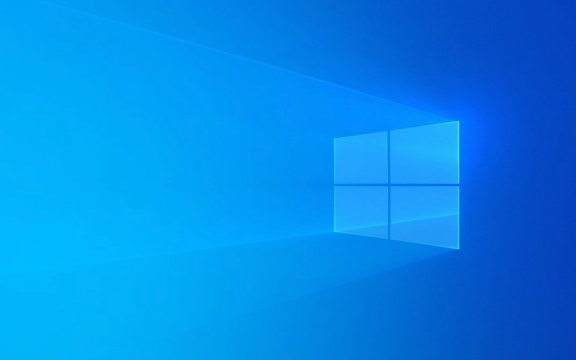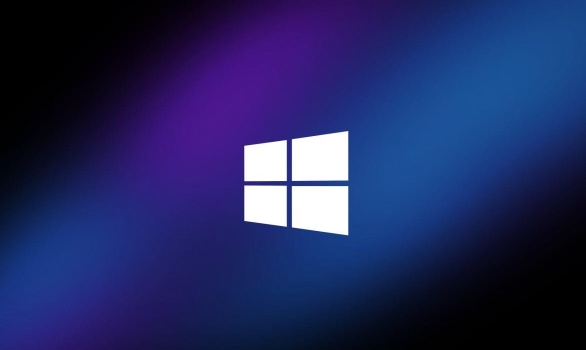 Computer Tutorials
Computer Tutorials
 Troubleshooting
Troubleshooting
 my win laptop is connected to power but the battery percentage is decreasing
my win laptop is connected to power but the battery percentage is decreasing
my win laptop is connected to power but the battery percentage is decreasing
Aug 01, 2025 am 05:54 AMCheck if the charger is faulty or underpowered—use the original or a higher-wattage charger, as a lower-wattage one may not supply enough power during heavy usage. 2. Inspect for battery or charging circuit issues by restarting the laptop, updating BIOS and drivers, and running the Windows Power Troubleshooter. 3. Resolve driver or software problems by uninstalling the battery driver in Device Manager and restarting to let Windows reinstall it. 4. Reduce high power consumption by closing demanding apps, lowering brightness, and enabling power-saving mode to prevent overload on the charger. 5. Calibrate the battery or assess its age-related wear by fully charging, draining to 0%, then recharging, and check battery health via powercfg /batteryreport to compare design and full charge capacity; replace if degraded. Most cases of battery drain while plugged in are caused by an underpowered charger, hardware degradation, or software glitches, and can be diagnosed using these steps.

If your Windows laptop is plugged in but the battery percentage is still going down, it can be confusing and frustrating. This shouldn’t happen under normal circumstances — when connected to power, the battery should at least hold its charge or charge up. Here are the most common causes and what you can do to fix it.

? 1. Faulty or Underpowered Charger
Even if the laptop shows "Plugged in, charging," it might not actually be receiving enough power.
- Check the charger wattage: Make sure you're using the original charger or one with equal or higher wattage (e.g., 65W, 90W). A lower-wattage charger (like a 45W USB-C charger on a power-hungry laptop) may not supply enough power, especially under load.
- Symptoms: Battery drains slowly while plugged in during heavy tasks (gaming, video editing), but holds steady when idle.
- Try this: Unplug and replug the charger, check for loose connections, and inspect the cable for damage.
? Example: If your laptop needs 65W but you're using a 45W phone charger, the laptop might draw more power than the charger can provide — so it uses the battery to make up the difference.

? 2. Battery or Charging Circuit Issues
The battery itself might be failing or the charging circuit isn't working properly.
-
Signs of a failing battery:
- Battery drains even when the laptop is off.
- Sudden drops in percentage (e.g., from 60% to 20% instantly).
- "Plugged in, not charging" message.
-
Try this:
- Restart your laptop.
- Update your BIOS and chipset drivers from the manufacturer’s website.
- Run the built-in Windows Power Troubleshooter:
- Go to Settings > System > Troubleshoot > Other troubleshooters > Power > Run.
?? 3. Driver or Software Problems
Outdated or corrupted battery drivers can misreport charging status.

-
Fix the driver:
- Press
Win Xand select Device Manager. - Expand Batteries.
- Right-click on Microsoft ACPI-Compliant Control Method Battery and choose Uninstall device.
- Restart your laptop — Windows will reinstall the driver automatically.
- Press
This often resolves phantom charging issues.
?? 4. High Power Usage Overloading the Charger
Even with a proper charger, extreme workloads can exceed power input.
- Activities like gaming, video rendering, or using multiple external devices can draw more power than the charger supplies.
- The system then uses battery to compensate, causing a slow drain.
? What to do:
- Close heavy applications.
- Lower screen brightness.
- Use power-saving mode (Settings > System > Power & battery > Power mode > Best power efficiency).
?? 5. Battery Calibration or Age
Old batteries lose capacity and may not charge correctly.
- If your laptop is over 2–3 years old, the battery may simply be worn out.
- Try calibrating the battery:
- Fully charge to 100% (keep plugged in for 1–2 extra hours).
- Unplug and let it drain to 0% (shut down).
- Plug back in and charge to 100% uninterrupted.
This helps the system recalibrate its battery reading.
? Final Checks
- Test with a different charger (same specs).
- Try a different power outlet.
- Check battery health:
- Open Command Prompt as admin and run:
powercfg /batteryreport
- Open the report (usually saved at
C:\battery-report.html) and check Design Capacity vs Full Charge Capacity.
- Open Command Prompt as admin and run:
If the full charge capacity is much lower than design, the battery is degraded and likely needs replacement.
Basically, if your laptop is plugged in but the battery is still dropping, it’s usually due to an underpowered charger, hardware wear, or a software/driver glitch. Start with checking the charger, then move to drivers and battery health. Most cases can be diagnosed with these steps.
The above is the detailed content of my win laptop is connected to power but the battery percentage is decreasing. For more information, please follow other related articles on the PHP Chinese website!

Hot AI Tools

Undress AI Tool
Undress images for free

Undresser.AI Undress
AI-powered app for creating realistic nude photos

AI Clothes Remover
Online AI tool for removing clothes from photos.

Clothoff.io
AI clothes remover

Video Face Swap
Swap faces in any video effortlessly with our completely free AI face swap tool!

Hot Article

Hot Tools

Notepad++7.3.1
Easy-to-use and free code editor

SublimeText3 Chinese version
Chinese version, very easy to use

Zend Studio 13.0.1
Powerful PHP integrated development environment

Dreamweaver CS6
Visual web development tools

SublimeText3 Mac version
God-level code editing software (SublimeText3)

Hot Topics
 Windows Security is blank or not showing options
Jul 07, 2025 am 02:40 AM
Windows Security is blank or not showing options
Jul 07, 2025 am 02:40 AM
When the Windows Security Center is blank or the function is missing, you can follow the following steps to check: 1. Confirm whether the system version supports full functions, some functions of the Home Edition are limited, and the Professional Edition and above are more complete; 2. Restart the SecurityHealthService service to ensure that its startup type is set to automatic; 3. Check and uninstall third-party security software that may conflict; 4. Run the sfc/scannow and DISM commands to repair system files; 5. Try to reset or reinstall the Windows Security Center application, and contact Microsoft support if necessary.
 PEAK Voice Chat Not Working on PC: Check This Stepwise Guide!
Jul 03, 2025 pm 06:02 PM
PEAK Voice Chat Not Working on PC: Check This Stepwise Guide!
Jul 03, 2025 pm 06:02 PM
Players have been experiencing the PEAK voice chat not working issue on PC, impacting their cooperation during climbs. If you are in the same situation, you can read this post from MiniTool to learn how to resolve PEAK voice chat issues.Quick Navigat
 Windows stuck on 'undoing changes made to your computer'
Jul 05, 2025 am 02:51 AM
Windows stuck on 'undoing changes made to your computer'
Jul 05, 2025 am 02:51 AM
The computer is stuck in the "Undo Changes made to the computer" interface, which is a common problem after the Windows update fails. It is usually caused by the stuck rollback process and cannot enter the system normally. 1. First of all, you should wait patiently for a long enough time, especially after restarting, it may take more than 30 minutes to complete the rollback, and observe the hard disk light to determine whether it is still running. 2. If there is no progress for a long time, you can force shut down and enter the recovery environment (WinRE) multiple times, and try to start repair or system restore. 3. After entering safe mode, you can uninstall the most recent update records through the control panel. 4. Use the command prompt to execute the bootrec command in the recovery environment to repair the boot file, or run sfc/scannow to check the system file. 5. The last method is to use the "Reset this computer" function
 Proven Ways for Microsoft Teams Error 657rx in Windows 11/10
Jul 07, 2025 pm 12:25 PM
Proven Ways for Microsoft Teams Error 657rx in Windows 11/10
Jul 07, 2025 pm 12:25 PM
Encountering something went wrong 657rx can be frustrating when you log in to Microsoft Teams or Outlook. In this article on MiniTool, we will explore how to fix the Outlook/Microsoft Teams error 657rx so you can get your workflow back on track.Quick
 The RPC server is unavailable Windows
Jul 06, 2025 am 12:07 AM
The RPC server is unavailable Windows
Jul 06, 2025 am 12:07 AM
When encountering the "RPCserverisunavailable" problem, first confirm whether it is a local service exception or a network configuration problem. 1. Check and start the RPC service to ensure that its startup type is automatic. If it cannot be started, check the event log; 2. Check the network connection and firewall settings, test the firewall to turn off the firewall, check DNS resolution and network connectivity; 3. Run the sfc/scannow and DISM commands to repair the system files; 4. Check the group policy and domain controller status in the domain environment, and contact the IT department to assist in the processing. Gradually check it in sequence to locate and solve the problem.
 The requested operation requires elevation Windows
Jul 04, 2025 am 02:58 AM
The requested operation requires elevation Windows
Jul 04, 2025 am 02:58 AM
When you encounter the prompt "This operation requires escalation of permissions", it means that you need administrator permissions to continue. Solutions include: 1. Right-click the "Run as Administrator" program or set the shortcut to always run as an administrator; 2. Check whether the current account is an administrator account, if not, switch or request administrator assistance; 3. Use administrator permissions to open a command prompt or PowerShell to execute relevant commands; 4. Bypass the restrictions by obtaining file ownership or modifying the registry when necessary, but such operations need to be cautious and fully understand the risks. Confirm permission identity and try the above methods usually solve the problem.
 the default gateway is not available Windows
Jul 08, 2025 am 02:21 AM
the default gateway is not available Windows
Jul 08, 2025 am 02:21 AM
When you encounter the "DefaultGatewayisNotAvailable" prompt, it means that the computer cannot connect to the router or does not obtain the network address correctly. 1. First, restart the router and computer, wait for the router to fully start before trying to connect; 2. Check whether the IP address is set to automatically obtain, enter the network attribute to ensure that "Automatically obtain IP address" and "Automatically obtain DNS server address" are selected; 3. Run ipconfig/release and ipconfig/renew through the command prompt to release and re-acquire the IP address, and execute the netsh command to reset the network components if necessary; 4. Check the wireless network card driver, update or reinstall the driver to ensure that it works normally.
 How to fix 'SYSTEM_SERVICE_EXCEPTION' stop code in Windows
Jul 09, 2025 am 02:56 AM
How to fix 'SYSTEM_SERVICE_EXCEPTION' stop code in Windows
Jul 09, 2025 am 02:56 AM
When encountering the "SYSTEM_SERVICE_EXCEPTION" blue screen error, you do not need to reinstall the system or replace the hardware immediately. You can follow the following steps to check: 1. Update or roll back hardware drivers such as graphics cards, especially recently updated drivers; 2. Uninstall third-party antivirus software or system tools, and use WindowsDefender or well-known brand products to replace them; 3. Run sfc/scannow and DISM commands as administrator to repair system files; 4. Check memory problems, restore the default frequency and re-plug and unplug the memory stick, and use Windows memory diagnostic tools to detect. In most cases, the driver and software problems can be solved first.






